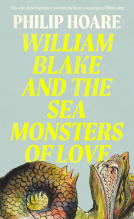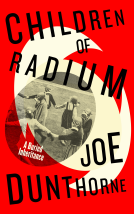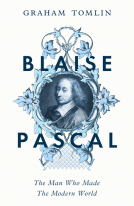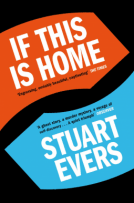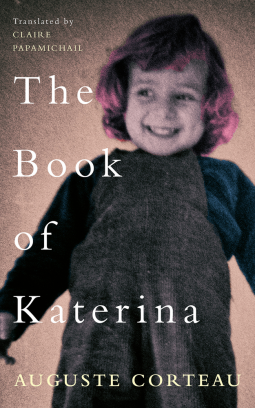
The Book of Katerina
by Auguste Corteau
This title was previously available on NetGalley and is now archived.
Send NetGalley books directly to your Kindle or Kindle app
1
To read on a Kindle or Kindle app, please add kindle@netgalley.com as an approved email address to receive files in your Amazon account. Click here for step-by-step instructions.
2
Also find your Kindle email address within your Amazon account, and enter it here.
Pub Date 3 Dec 2021 | Archive Date 27 Jul 2021
Talking about this book? Use #TheBookofKaterina #NetGalley. More hashtag tips!
Description
Advance Praise
• “The Book of Katerina is a gleefully sardonic novel about illness and family, and how we can never quite cure ourselves of either.” - GLEN JAMES BROWN
• Award-winning and prolific author of novels, plays, novellas, short story collections and translations.
• A popular stage adaptation of the novel, directed by Yorgos Nanouris, won critical acclaim and was presented to UK audiences in 2016.
Available Editions
| EDITION | Other Format |
| ISBN | 9781912681266 |
| PRICE | US$13.99 (USD) |
| PAGES | 170 |
Featured Reviews
 Kathleen D, Reviewer
Kathleen D, Reviewer
𝑰’𝒗𝒆 𝒏𝒐 𝒊𝒅𝒆𝒂 𝒉𝒐𝒘 𝒊𝒕 𝒊𝒔 𝒕𝒐 𝒍𝒐𝒔𝒆 𝒚𝒐𝒖𝒓 𝒎𝒊𝒏𝒅, 𝒃𝒖𝒕 𝒏𝒆𝒗𝒆𝒓 𝒊𝒏 𝒎𝒚 𝒍𝒊𝒇𝒆 𝒉𝒂𝒗𝒆 𝑰 𝒇𝒆𝒂𝒓𝒆𝒅 𝒂𝒏𝒚𝒕𝒉𝒊𝒏𝒈 𝒎𝒐𝒓𝒆: 𝒕𝒉𝒆 𝒎𝒆𝒓𝒆 𝒕𝒉𝒐𝒖𝒈𝒉𝒕, 𝒕𝒉𝒆 𝒆𝒏𝒆𝒓𝒈𝒆𝒕𝒊𝒄 𝒗𝒆𝒓𝒃 𝒕𝒐 𝒈𝒐 𝒊𝒏𝒔𝒂𝒏𝒆 𝒊𝒔 𝒘𝒐𝒓𝒔𝒆 𝒕𝒉𝒂𝒏 𝒅𝒆𝒂𝒕𝒉 𝒂𝒏𝒅 𝒕𝒐 𝒅𝒊𝒆, 𝒊𝒕𝒔 𝒃𝒍𝒂𝒄𝒌 𝒗𝒐𝒓𝒕𝒆𝒙 𝒎𝒐𝒓𝒆 𝒉𝒐𝒓𝒓𝒊𝒇𝒚𝒊𝒏𝒈 𝒕𝒉𝒂𝒏 𝒏𝒐𝒏𝒆𝒙𝒊𝒔𝒕𝒆𝒏𝒄𝒆.
This isn’t a happy book, in fact the generations of the family living in the Greek city of Thessaloniki have suffered through serious miseries, to which there seems no end. Katerina may not endear many readers, but if you are paying close attention, every incident in her life (much of it tragic, despite her social standing) has led to her disturbing, sad end. In fact, none of her siblings really escape the viciousness of their fate, their family malady. The tale does jump about, and usually choppy writing and such timelines drive me nuts, but it relays to me, in a sense, the state of Katerina’s troubled mind. She never makes you feel sorry for her and for some reason that made the character study far more riveting. Is the family genetics to blame for the mental health issues, the environment, the neglect, the family pecking order? More like a disorder.
There are many truths silenced within this family, even before Katerina is born. Her grandmother was Jewish, but that ‘shame’ had to be disguised, hence her name was changed. She had three children, all girls. The eldest Irene “Irini” is Katerina’s weak and self-indulgent mother. With her first child, a son, born with a condition that didn’t make itself known until he was five, one that wasn’t diagnosed correctly back in those times, he is sent to a children’s institution- one she never visits, as there are other children that follow. He is the first defect, but he won’t be the last. How can a woman who clings to the exquisiteness of her youth, the former grandeur, the social privilege bear the stigma of a defective child? Are the times to blame for such rejection? The second may be challenged in other ways, but she will have her favorites. More offspring follow, some die, some are born with their own stigmas while youngest, Katerina is the “accident” and the jealous sister before her makes life hell. But who is the real devil? Irini cannot cope raising her brood, and brings her niece Zoë into the household, an angel, a source of never-ending love and the only mothering the children will know. A protector and an unlikely one whose own unfortunate origins should be reason enough to be as maladjusted as the family she becomes a part of, Zoë is like a saint but has her own irrational fears. Irini can be brutal when facing her children’s weaknesses, her reaction when Katerina suffers a mental disturbance is to shut up, keep it to yourself, likely out of fear and half out of shame. This is a defining moment, one that makes the monster in Katerina’s mind grow far bigger, chaining itself to her future. Despite life going against all her wishes, Katerina’s mother has high ambitions. Even if fate deals her cross eyed children and a lackluster love life. A life without romance can always be filled by cheap junk.
Katerina and her siblings want for nothing but it cannot save the Horianos from ruin, which will follow them into adulthood. Even a cousin is wrecked by the ravings of the family, born to a beautiful mother and fated to be plain. Back we go into Katerina’s past, learning all the distorted happenings. A mother who cries behind closed doors, unable to attend to her parental duties, what sort of mark does this leave on Katerina, what sort of mother does she herself become? Madness is always nesting in this family. What is to be done with frayed nerves, mental torment? The church has an answer, beg Jesus for mercy. It doesn’t help. Neither does her last resort, a medical doctor, who violates her. This violation forges Katerina’s distrust of the very people who should be helping her manage her bipolar disorder. Is it this unforgiveable act that set the stage for her final scene so many years later?
Ill advised love, miscarriages, marriage, political upheaval, pregnancy and an earthquake… then Katerina’s beloved son, the child she carries to term, Petros, is born. He is the light in the darkness of her depressions, even able to transfix his mean grandfather. The old man’s heart is hooked, earning Petros adoration, allowing the dark episodes of Katerina’s life to subside for a time. Hypersensitivity arises, breakdowns occur, she becomes a suspicious, jealous wife and at times an inept mother. Her love is diseased and she fears her son may be a lover of goats and that’s a whole other tale. Her rough edges are never smoothed, she has spent her life dealing with the horrors of others and the horrors in her own mind. She has many faults and confronts them all. She is a force until the very end, and this book will tear her apart from the moment she gives birth to her son until he finds her body on sad display.
Her brain turned against her and she was tired of fighting. Here, her beloved son speaks for his mother, in a retelling of her life and intimate thoughts. Katerina was a product of her time clinging to old fashioned views, but that’s how people were, blunt, callous, narrow minded about different lifestyles and choices. She isn’t always likeable, certainly her own parents aren’t either, knowing they sent a child away to an institution. Mental illness is not new and if you consider today’s treatment, you can see how impossible getting things right had to have been then. She is arrogant and yet deeply insecure and damaged. How can her son not be affected by her clinical depression? Maybe not for every reader but I was engaged and moved, thinking of the reasons the author must have decided to write about his mother. Maybe by bringing her to life he can put her to rest.
Publication Date: June 1, 2021
Parthian Books
Excellent. I highly recommend it. Corteau manages to convey to us the experiences of an entire family, the relationship between them and the mental illness through the eyes of a child first, and an adult later. Well-written, with rhythm and self-sarcasm, and instead of crying because something difficult is being described, somewhere along the way you go over on the other side of the spectrum and laugh instead.
A story of a Greek family, with issues that some people hide under the carpet and consider to be taboo subjects, which only perpetuates the stigmatization. Corteau writes about manic depression, alcoholism and suicide, but it leaves you laughing. Love always, as he usually writes on his social media platforms.
Thank you Netgalley for this opportunity in exchange for an honest review.
 Mandy J, Reviewer
Mandy J, Reviewer
“When four siblings out of four end up on medication by the age of forty, something very bad must have happened during their childhood.” And indeed very bad things did happen in the eponymous Katerina's childhood, as we discover in this visceral and hard-hitting fictional memoir of the author’s own mother. Katerina and her siblings want for nothing as they are growing up – except a loving and stable upbringing and caring parents. Then there is a hereditary predisposition to mental health which manifests itself in them all, and goes on to hurt Katerina’s own son Petros. Her relationship with this son is at the heart of the novel, and it’s all-consuming and dangerous both for her and the boy. The book is an intimate and often uncomfortable exploration of Katerina’s inner world and her constant struggle with her mental health. We meet her on the first page just after she has committed suicide and we go back over the years to discover what has led her to this tragic end. I found the book a truly compelling read, one which took me into a world of mental illness though vivid descriptions of Katerina’s mental states. So it’s a difficult read for sure, but not a completely bleak one, and is an insightful and intelligent examination of a deeply troubled woman but one whose self-knowledge shines through and illuminates the world around her. Highly recommended.

